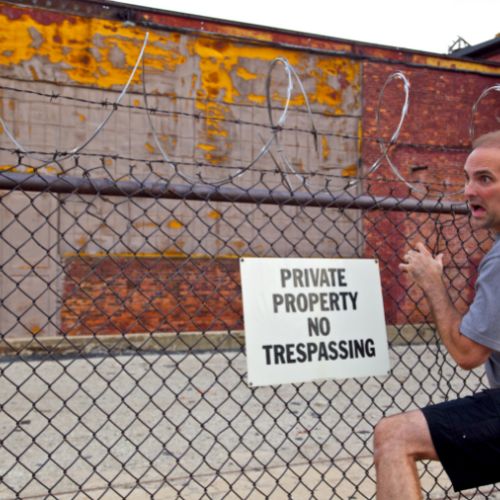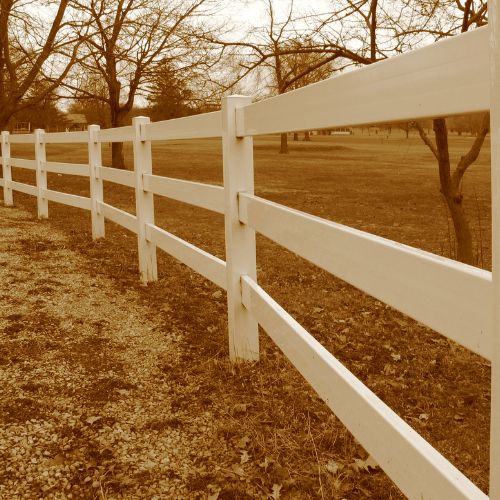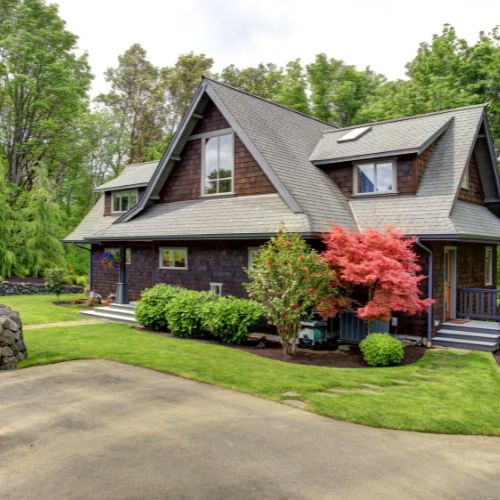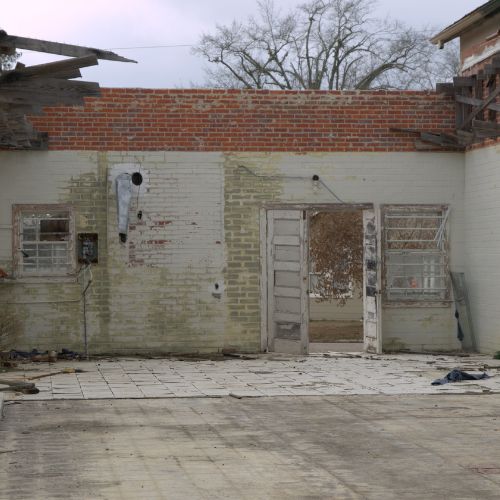An assured tenancy places an obligation upon the landlord to meet certain legal criteria before they can take possession of the property. When there is an assured short-hold tenancy, however, the landlord’s sole requirement will be to show that the tenancy has ended and that they gave the tenant sufficient notice, although a court order will still be required in order to take possession of the property.
In practice, most tenancies that came into force after January 1989 are assured tenancies. The deed of covenants recognises the rights and obligations of both landlord and tenant parties. Obligations relating to property maintenance rest upon landlords and tenants alike. Whether the property is commercial or residential, if the respective duties are not met on either side, this may give rise to a claim for dilapidation.
At Ackroyd Legal, our expert team of property litigation solicitors has diverse experience in all aspects of landlord and tenant law, and we act for both landlords and tenants when disputes over assured tenancies arise. Whatever the situation, please contact us, and we will be very happy to help you.
In residential properties, dilapidation disputes may escalate quickly, and it is therefore important for both landlords and tenants to act quickly when a problem arises that falls within the scope of their responsibilities in order to reduce the potential costs as well as to avoid any unnecessary tension further down the line.
For tenants, it is important that obligations concerning repairs and maintenance are fully met because otherwise, they may be affected when it comes to the renewal of the lease, the return of deposits or their position if they need to take advantage of a break clause. It is crucial for tenants to be aware of and adhere to legal limitations governing property upkeep, as adherence to these standards not only ensures a smooth tenancy but also safeguards their rights and interests in the face of lease-related matters.
When a claim for dilapidation arises, there is a protocol that must be followed. The specialist property solicitors at Ackroyd Legal can advise and support you throughout this process, whether you need to make or defend a dilapidation claim. If you are bringing the claim, you should begin by drawing up a schedule of the relevant issues.
In most cases, it is faster and far more cost-effective to resolve dilapidation disputes before the matter reaches court, and we will look after your interests throughout this process and provide firm and robust representation if litigation is impossible to avoid.
Disputes over property rights can arise over any property, whether residential or commercial; although in practice disputes surrounding residential property are more common. Whilst the legal ownership of a property refers to the registered owner or owners whose title is legally enforceable, beneficial ownership is about property rights that relate to the use and title of the property, even though the legal owner is someone different.
It’s crucial to be aware of ownership restrictions that may apply in property transactions. The legal and beneficial ownership of property can become the subject of a dispute over property rights when arrangements have remained informal over a long period of time, and there is a lack of written evidence over what was originally intended with regard to ownership. For example, an unmarried couple whose home was bought in one name only; however, both partners have resided in and maintained the property for many years.
Ackroyd Legal is a leading firm of property law solicitors based on the fringe of the city of London. We have many years of experience in dealing with all aspects of the legal and beneficial ownership of property and will provide clear, straightforward advice on your case regarding restrictive covenants, restrictive covenant insurance or enforces restrictive covenants. We are a large firm offering a wide range of legal services and will be able to advise on other related aspects, for example, the setting up of trusts that will protect family interests in the future.
Rent arrears can cause considerable problems for landlords because outstanding rent can quickly build up, and recovery may not be straightforward if the financial circumstances of the tenant mean that they simply cannot pay and are unsure when they will be able to do so.
Tenants that are not paying their rentIf property owners are suffering inconvenience and financial loss because of tenants who cannot pay their rent, the property law specialists at Ackroyd Legal can help you.
In cases of rent arrears when the property is residential, it may be easier and more cost-effective to try to come to an arrangement with the tenant in an attempt to avoid taking the matter to court in particular circumstances. There will, however, be cases when this is not effective, and legal action will become necessary to take possession of the property and recover the money owed, if possible.
With regard to commercial properties, there are more options available in cases of rent arrears, and the landlord may decide to forfeit the lease by removing the tenants. They may also pursue a claim for the outstanding rent.
Services charges are issued by landlords to their tenants to cover services that are enjoyed by the tenant under the terms of their lease. Examples will often include the provision of basic utilities such as power, water, building maintenance and insurance. Ackroyd Legal is a leading London law firm with an experienced team of property experts who act on behalf of landlords and tenants in cases of service charge disputes.
For landlords, a resolution is usually achieved with the recovery of the outstanding charges that the tenant has failed to pay, and we can advise on the fastest and most cost-effective course of action. We will also provide sound advice and robust representation in more complex cases involving service charge disputes, such as if the tenants have absconded or if the terms of the lease have been breached.
Tenants may instigate a service charge dispute if they are being overcharged for services or if certain services that are chargeable under the terms of the lease are not being provided. It may be possible and certainly more cost-effective to attempt to reach a resolution through negotiation with the landlord in the first instance.
If this proves ineffective, it may be necessary to bring the dispute to court or to a leasehold valuation tribunal. In long-running disputes, tenants may be able to exercise the statutory right to manage the building or even acquire the freehold under the Commonhold and Leasehold Reform Act 2002.
If you are involved in any kind of service charge dispute, the team of property litigation solicitors at Ackroyd Legal can help you. Please contact us to talk about your situation, and we will be very happy to help you.

Adverse possession arises when someone makes a claim to a piece of land which is disputed…

Our specialist solicitors can provide legal advice and guidance throughout the commercial rent review…

Contractual disputes may arise over many different types of agreement can provide…

Contractual disputes may arise over many different types of agreement can provide…

Because disputes between landlords and tenants can escalate very quickly, it is essential to get…

If you are affected by a restrictive covenant that is in place either to protect your interests…

If you are involved in a trespass situation as either an owner or as an occupier…

Our expert team has diverse experience in all aspects of landlord and tenant law…

Our team of specialist property law solicitors have many years’ experience in commercial…

We have many years’ experience in dealing with property development disputes…

Possession claims arise when a landlord or stakeholder is forced to take possession…

n injunction is a court order that is granted to prevent another party from taking a particular course…

Boundary disputes arise when the boundary of a property is unclear or is brought into question…

Leasehold disputes commonly arise between freeholders and leaseholders, and will often…

When two or more people share ownership of a property, disputes are most likely to arise…

A right of way is a legal right that has been established by usage to pass through land or property…

Planning appeals may arise in cases when planning applications do not achieve the desired outcome…

Negligence and private nuisance are classed as civil wrongs in English law…

A restrictive covenant refers to a legal provision that places restrictions upon the use of land…

Obligations relating to property repairs and maintenance rest upon landlords and tenants alike…

The term dilapidations refer to a property’s state of disrepair where there is a legal liability…

Criminal law involves the state/government bringing a prosecution against an individual…

At Ackroyd Legal, our dedicated team of immigration lawyers take a human…

We are well versed in looking after the interests of our…

With the global economy growing at a fast rate investing in the UK is an increasingly…

Our team of intellectual property solicitors provide a robust understanding of the…

Personal injury is the legal term for an injury or illness that is caused or…

Dispute resolution is the process of resolving disputes between parties which…

Our dedicated team of risk management solicitors are highly experienced in solving problems…
GET IN TOUCH

16 Prescot Street,
London, E1 8AZ
Ackroyd Legal is a trading style/name of Ackroyd Legal (London) LLP , which is authorised and regulated by the Solicitors Regulation Authority, SRA No. 554585 and is a LLP registered in England & Wales, Company No. OC360125; VAT no. 445717436;
David Ebert LLP is a separate entity from Ackroyd Legal (London), LLP and are authorised and regulated by the Solicitors Regulation Authority, SRA no. 558176.